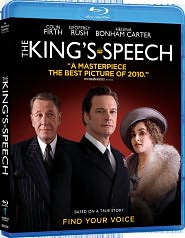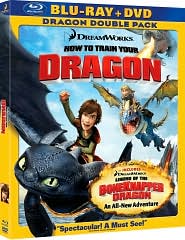 |
| From 201108_Prague |
Sunday, December 11, 2011
Saturday, December 10, 2011
Friday, December 9, 2011
Wednesday, December 7, 2011
Saturday, December 3, 2011
Friday, December 2, 2011
Sunday, October 30, 2011
Saturday, October 29, 2011
Sunday, July 3, 2011
Pantnagar to Haldwani: A very picturesque journey: Photos
You may also like to read my post on how to reach pantnagar from chennai
 |
| From 20110410_Pantnagar |
 |
| From 20110410_Pantnagar |
 |
| From 20110410_Pantnagar |
Saturday, July 2, 2011
Monday, May 30, 2011
Santhome Marina Beach Chennai - Summer Fun
Thought we would be the only people at 4 PM on a Sunday afternoon - quite surprised to see so many in the beach side and in water


 |
| From Blogger Pictures |
 |
| From Blogger Pictures |
 |
| From Blogger Pictures |
 |
| From Blogger Pictures |

Thursday, May 26, 2011
Saw: Movie: Band Bajaa Baaraat
Worth a watch - especially kind of nice to see 2 new fresh and girl next door kindof looks of the hero and heroine
Bollywood: The Pocket Essential Guide
Bollywood: The Pocket Essential Guide
Wednesday, May 25, 2011
Saturday, May 21, 2011
Got a new Sony Ericcson Experia Arc: Nice phone: A short review
I moved from a Nokia e63 to a Sony Ericsson Experia Arc touch phone - Full key board to no keys
The phone runs Android 2.3 and has a fantastic screen (BRAVIA engine) - Not a surprise from Sony. The pictures are good too.
My biggest pain areas
1. Phone access - I was so used to using keys for calling with keys. Until I learned favourites and how to use it, it was a pain
2. Oily hands - The screen is clean and my hands are perma oily. Smudge marks
3. Battery - but if you manage it intelligently, its cool
4. Camera button is a little tight and does not go off when required.
5. Sync with my corporate outlook thick client contacts is through google servers and gmail contacts instead of directly with the laptop
My biggest surprises
1. Book reading is fun
2. Youtube apps works beautifully
3. Phone and music/video clarity is great
4. gmail and picasaweb albums come in gallery very nicely

The phone runs Android 2.3 and has a fantastic screen (BRAVIA engine) - Not a surprise from Sony. The pictures are good too.
My biggest pain areas
1. Phone access - I was so used to using keys for calling with keys. Until I learned favourites and how to use it, it was a pain
2. Oily hands - The screen is clean and my hands are perma oily. Smudge marks
3. Battery - but if you manage it intelligently, its cool
4. Camera button is a little tight and does not go off when required.
5. Sync with my corporate outlook thick client contacts is through google servers and gmail contacts instead of directly with the laptop
My biggest surprises
1. Book reading is fun
2. Youtube apps works beautifully
3. Phone and music/video clarity is great
4. gmail and picasaweb albums come in gallery very nicely
Friday, May 20, 2011
Dolphins Nose:A viewpoint near Coonoor
The drive to Sims park from Coonoor is pretty long 10+ kms, and the road is pretty narrow. If you can , take a local driver.
I liked the ride as it was very picturesque
A view from the top - they have telescopes there too
The point that looks like the nose
The famous St. Catherine falls

I liked the ride as it was very picturesque
 |
| From 201104_Conoor |
A view from the top - they have telescopes there too
 |
| From 201104_Conoor |
The point that looks like the nose
 |
| From 201104_Conoor |
The famous St. Catherine falls
 |
| From 201104_Conoor |
Thursday, May 19, 2011
Flowers: Photographs at Coonoor
Wednesday, May 18, 2011
Sims Park: Coonoor: Photo essay and some details
This was the second time to Sims park. Its YAP (Yet Another Park) in the hills except that its set up in 1874 and has more than 200+ generas. Its not very big. Only one tip for people with kids - The park slopes down and the kids play area is right at the bottom , so.... its fun to go down but very difficult to come up!!
History and Details of Sims Park
| From 201104_Conoor |
Pond at the bottom of the park
| From 201104_Conoor |
| From 201104_Conoor |
A log of who visited Sims park on bamboo
| From 201104_Conoor |
General pictures of trees and walkways
| From 201104_Conoor |
| From 201104_Conoor |
Tuesday, May 17, 2011
A visit to the Tea Factory: How is tea made - Plant to cup process
This factory is about 2 kms from Coonoor Sims park. I found it very interesting and thought I should share the process of making tea
Tea is made in a 6 step process of
1. Plucking
2. Weathering
3. Tearing
4. Fermenting
5. Drying/roasting
6. Grading
Types of tea: CTC, Orange Pekoe, Green and White
1. Plucking: Tender tea leaf buds picked at a time of the day , twice a year is used for white tea. Tender leaf buds picked any time of the year is used for green tea and orange pekoe. The tea leaves picked through the year are used for CTC. Generally, lower in the stem and mature leaves are avoided as they have higher caffeine.
2. Weathering: Tea leaves are placed on a flat bed with air (cool/normal temp) blowing from below for about 12 hours. This removes about 30% moisture. This process is required to ensure that during the next CTC step, the leaves dont become pulpy but tear neatly.
3. CTC/Orthodox tearing: Cutting , Tearing and Curling (CTC) - this is the most preferred tea in India. The CTC process does just as it expands - cut, tear and curl, transforming the leaves into finer bits.
In the orthodox process , instead of CTC, the leaves are ground through a sieve. This process is used for orange pekoe and green tea. This process is preferred for exports.
4. Fermenting: In this process, the leaves are processed through a rotating drum and hydrated with a water spreay. This is where they pick up the brownish color and aroma. The process is usually for 1 hour , with an additional 2 hrs in open tray fermntation. There is no fermentation process for Green, Orange pekoe and white tea.
5. Roasting/Drying: A 250 degree roast is done for the CTC and 30 degree to 80 degree for green and orange pekoe teas respectively. Generally white teas may not be roasted except mildly.
6. Grading: Teas are sieve graded into 11 categories - 6 leaves and 5 dusts. The Super fine dust is typically used in the tea bags. It is not superior or inferior grades, but graded for the purpose they will be used. Many commercial teas are blended for best results. For example, granular gives strong, a ablend is used by hotels etc.


| From 201104_Conoor |
Tea is made in a 6 step process of
1. Plucking
2. Weathering
3. Tearing
4. Fermenting
5. Drying/roasting
6. Grading
Types of tea: CTC, Orange Pekoe, Green and White
1. Plucking: Tender tea leaf buds picked at a time of the day , twice a year is used for white tea. Tender leaf buds picked any time of the year is used for green tea and orange pekoe. The tea leaves picked through the year are used for CTC. Generally, lower in the stem and mature leaves are avoided as they have higher caffeine.
| From 201104_Conoor |
2. Weathering: Tea leaves are placed on a flat bed with air (cool/normal temp) blowing from below for about 12 hours. This removes about 30% moisture. This process is required to ensure that during the next CTC step, the leaves dont become pulpy but tear neatly.
| From 201104_Conoor |
3. CTC/Orthodox tearing: Cutting , Tearing and Curling (CTC) - this is the most preferred tea in India. The CTC process does just as it expands - cut, tear and curl, transforming the leaves into finer bits.
| From 201104_Conoor |
| From 201104_Conoor |
In the orthodox process , instead of CTC, the leaves are ground through a sieve. This process is used for orange pekoe and green tea. This process is preferred for exports.
| From 201104_Conoor |
4. Fermenting: In this process, the leaves are processed through a rotating drum and hydrated with a water spreay. This is where they pick up the brownish color and aroma. The process is usually for 1 hour , with an additional 2 hrs in open tray fermntation. There is no fermentation process for Green, Orange pekoe and white tea.
| From 201104_Conoor |
5. Roasting/Drying: A 250 degree roast is done for the CTC and 30 degree to 80 degree for green and orange pekoe teas respectively. Generally white teas may not be roasted except mildly.
| From 201104_Conoor |
6. Grading: Teas are sieve graded into 11 categories - 6 leaves and 5 dusts. The Super fine dust is typically used in the tea bags. It is not superior or inferior grades, but graded for the purpose they will be used. Many commercial teas are blended for best results. For example, granular gives strong, a ablend is used by hotels etc.
| From 201104_Conoor |

Subscribe to:
Comments (Atom)








